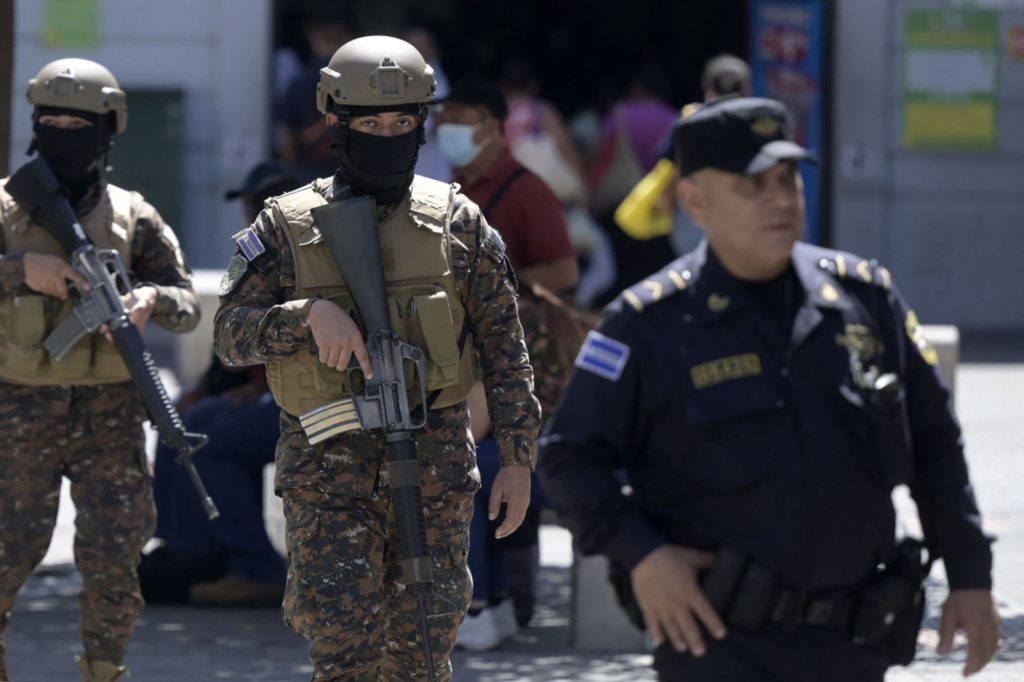(Bloomberg) — Police in El Salvador used emergency powers to round up nearly 600 suspected gang members after criminals unleashed a killing spree over the weekend that spread terror across the Central American nation.
In the early hours of Sunday morning, the National Assembly approved a state of emergency request made by President Nayib Bukele, which grants the police extra powers. The move came after at least 62 people were slaughtered on Saturday in some of the worst bloodshed since the nation’s civil war ended three decades ago.
El Salvador has long been one of the world’s most violent countries, but had been relatively calm since Bukele took office nearly three years ago, which is one of the reasons for his high approval ratings. The U.S. Treasury said in December that Salvadoran officials reached a secret deal with the gangs to cut violence, though Bukele has denied this.
Bukele said that the police had made hundreds of arrests in two days, and pledged to take a tough line on the groups, which control entire neighborhoods and engage in extortion and drug trafficking. Prison director Osiris Luna said gang members in jail will only get two meals a day.
“If the international community is worried about its angels, come and bring them food because I won’t take public money away from schools to feed these terrorists,” Bukele said on Twitter.
State of Emergency
The constitution allows for a state of emergency “in cases of war, territorial invasion, rebellion, sedition, catastrophe, epidemic or other general calamity or in case of grave disturbances to public order,” the National Assembly said in a statement on its website.
The decree loosens arrest rules, while the constitutional rights of assembly and communication are temporarily suspended to allow law enforcement and the military to secure national territory for a 30-day period, the Assembly said.
The penal system is ordered to implement the emergency at its maximum security prisons, with jail cells locked around the clock, Bukele wrote on Twitter.
“The message to gangs is: because of your actions, your homeboys will not be able to see a single ray of sunlight,” he said.
Jeannette Aguilar, a Salvadoran security specialist, said that gangs are again leaving the bodies of their victims in public spaces to send a message about who controls territory in the country.
“This has affected the government because it reveals their incapacity and shows the public their failure in these almost three years on what they claim is their greatest accomplishment,” Aguilar said in a response to written questions.
The U.S. Treasury said on Dec. 8 that “covert negotiations” took place between Salvadoran officials and the Mara Salvatrucha 13 criminal organization as part of the government’s goal of reaching a “secret truce with gang leadership.”
The deal with the gangs, Aguilar said, is the root cause of the recent uptick in violence.
El Salvador’s dollar-denominated bond due in 2023 was indicated lower on Monday at 82.4 cents on the dollar at 10.50 a.m. in New York. The government recently delayed plans for the world’s first sovereign blockchain bond.
Read More: Crypto World Awaits El Salvador’s Bite-Size Volcano Bitcoin Bond
(Adds details on blockchain bond in final paragraph. A previous version of this story corrected the bond move in the final paragraph.)
More stories like this are available on bloomberg.com
©2022 Bloomberg L.P.











